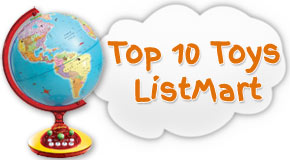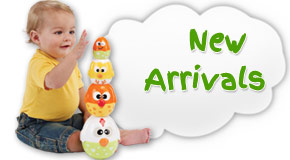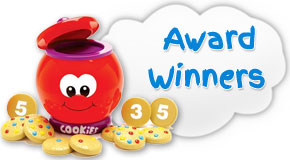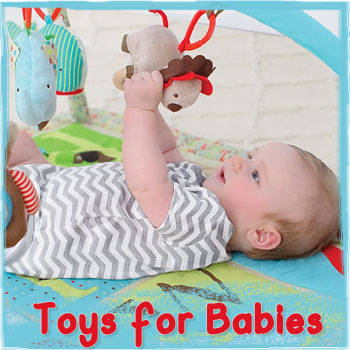 Toys for Babies
Toys for Babies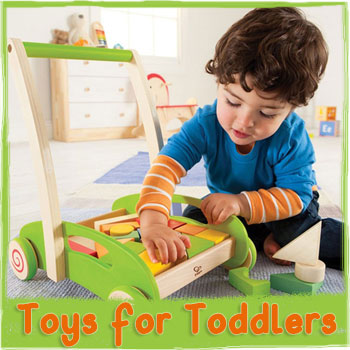 Toys for Toddlers
Toys for Toddlers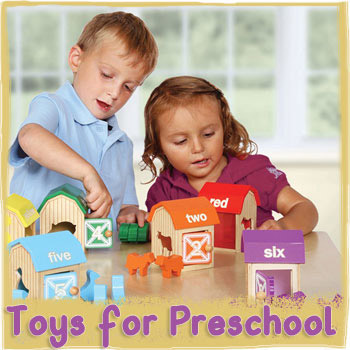 Toys for Preschoolers
Toys for Preschoolers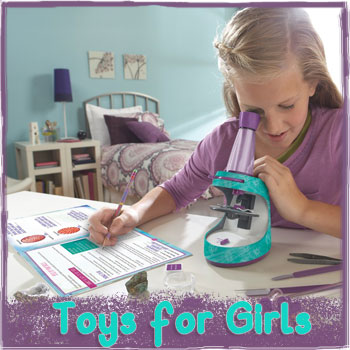 Top 10 Toys for Girls
Top 10 Toys for Girls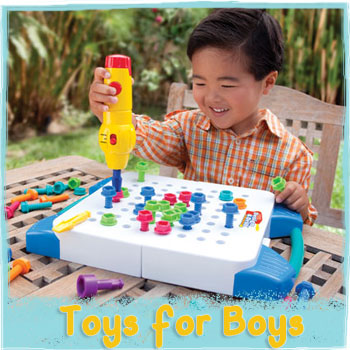 Top 10 Toys for Boys
Top 10 Toys for Boys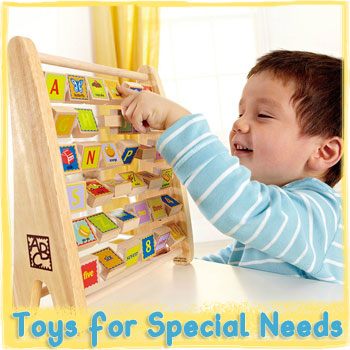 Toys for Special Needs
Toys for Special Needs
Educational toys are useful for more than just entertainment and play. Educational Toys Planet's selection of toys helps children learn new skills, develop their minds into lifelong learners, as well as encourage kids to explore what they might find interesting in life. Choosing the perfect toy for a child is never easy, especially when they are of different ages. Toys can be used to stimulate and teach children in various ways such as teaching them about letters or numbers, helping with their development skills like puzzles and stacking blocks, or even inspiring creativity through arts-and-crafts kits.
Toy manufacturers often market toys according to these three categories: "educational" which focuses on developing specific mental abilities; "interactive," where playtime results from interaction between people (e.g., board games); and finally there's something known as an "entertainment" toy that aims solely at providing amusement without any other educational benefits whatsoever! Educational Toys Planet is a store that puts the emphasis on educational and interactive toys, which are two categories of toy our customers want most.
How does playing with toys help to raise intelligent children?
Playing with toys has many benefits for children, including improving their coordination, social skills and language. Playing in a child's developmental years has stronger effects on the brain than almost any other activity. What we see in the early months of life dictates how our higher order cognition will develop and what connections form between neurons that govern our thinking, memory and personality. Physical play trains emerging neural pathways to be more complex rather than functionally simplistic allowing for richer memories, better controlled thoughts, and improved concentration skills. Socializing with other children improves empathy making them better able to understand others' emotions while also enhancing communication skills that come into play later as they learn to read and write words or act out simple math problems. The finer motor control needed to manipulate the different parts of a toy (like putting together Legos or playing with a bead maze) improves dexterity, which is critical for writing skills to be effective and efficient. Several studies have also found that those who use their hands more often in play are better at school-type activities like drawing pictures or using scissors when compared to children only exposed to such tasks during school hours. Researchers agree, "It seems clear that if you want a clever child—or adult—you had best start early". Therefore, it's very important to encourage parents and teachers to provide an adequate amount of toys and stimulation for young children (especially boys). Choosing educational toys for 3 years old toddlers help them develop fundamental life skills they need as adults. By working with toys, toddlers explore and learn how the world works. Toys are great motivators that will engage them in learning and practicing new skills or trying out things they couldn't do before.
Parents, it is important that we play together with our kids!
Dear parents! In our effort to make the most of every opportunity for children to gain knowledge and skills, let us play with our kids! We encourage parents to provide opportunities for their young child's cognitive development so that they become more successful with reading, writing, language use, math concepts and critical thinking skills. Playing is not only fun but is good for growing brains. Whether you call it playing as therapy or using toys as a tool for improving critical thinking skills…the message is clear: Parents need to get down on the floor and play with their toddlers! Playing with their children is one of the most important things parents can do to help their children develop. Playing is an action, not a product, and it's all about the process with toddlers. For example; pretending to eat dinner from a bowl (when in fact no food sits there), encourages young children to expand their understanding of what they are pretending about, prompting them into thinking about how other people feel or how various aspects of objects work. The act of playing involves talking, asking questions, observing and listening – all the activities that encourage learning at this age.
25 cases to use educational toys and games to raise intelligent children
- Introduce children to the concept of STEM (Science, Technology, Engineering and Mathematics) from a young age by playing with toys such as building toys, math toys, marble runs and toys that encourage exploring and creative thinking.
- Encourage your child's creativity by giving them art supplies or other materials that will help them express themselves creatively. Encourage their creativity and show support for whatever they create!
- Role play scenarios where they have to make decisions about dangerous situations or unsafe behavior (e.g., crossing the street).
- Play board games to teach them strategy skill and improve mental math. This can be especially helpful for children who struggle with abstract concepts like fractions or decimals in arithmetic, since the mathematical equations found in board games have more of a concrete representation than what is typically used during school hours. Playing board games not only teaches your child valuable life lessons that will stay with them forever but also helps build up those crucial brain cells!
- Educate your child about the environment and how to care for the Earth by engaging them in in pretend (and real!) activities such as gardening, recycling or collecting non-toxic trash to dispose of.
- Introduce your kids to puzzles to develop their problem-solving skills.
- Teach them to read early by playing with educational toys that have letters and words on them.
- Introduce toys that help improve children's motor skills e.g., nesting or stacking toys, even bath toys.
- Educate kids on how to be healthy by teaching them about the food pyramid by playing with pretend food.
- Play with your kids to develop their physical strength, cardiovascular health and coordination.
- Play with toys that will help boost their communication skills.
- Improve their creativity and building skills.
- Play games that teach social skills.
- Introduce your child to electronic learning by allowing them to play with electronic toys that will improve their motor skills and ability to think logically.
- Teach to understand and love nature by growing plants by themselves.
- Encourage your kids to interact with other children at their level.
- Encourage your children to use toys in different ways.
- Stimulate your children's imaginations by giving toys that let them make up stories on their own.
- Encourage your kids' creative thinking, problem solving, memory or spatial reasoning skills.
- Give them time in the day where they can paint, draw or build something without pressure.
- Give them toys that will help teach them to follow instructions.
- There are tons of science toys to improve scientific knowledge.
- Play toy musical instruments to improve concentration and rhythm.
- Give toys that will teach them to count numbers.
- Play educational matching and memory games to improve memory and reflexes.
What are some types of age-appropriate educational toys?
We recommend using different strategies to encourage cooperation, altruism, compassion, empathy and social skills by providing age-appropriate opportunities around new challenges as well as a wide range of materials with which to problem solve.
0-1 years
Some babies enjoy being introduced to toys with bright colors and interesting textures while others are more interested in sounds and shapes that can be sorted or stacked.
1-2 years
It can be tempting to pamper your child and buy them toys galore, but this is not the best idea for 1 year olds. They aren't ready to understand anything more than light, sound, and touch yet. So it's best to keep things simple for now.
2-3 years
2 year old toddlers get really into toys that have sounds. They love to push buttons and hear the bear laugh, or turn a wheel and watch it go round and round! They're just getting their sense of hearing activated so they might like music too.
3-4 years
A three-year-old is one of the fastest learners on earth. They are ready to read, write and start to add up simple numbers!
4-5 years
For children between 4 and 5 years old, 3D puzzles are a great option.
5-6 years
There is no "right" kind of educational toy for 5 year olds.
6-7 years
For a 6 year old, educational toys can range from games, puzzles, early science kits and building sets to stuffed animals.
7-8 years
It's a good idea to think about your 7 year old learner.
8-10 years
We would suggest puzzles, books, activities that require drawing skills. Also construction sets, magnets and kits for science learning.
10+ years
When buying educational toys for kids aged 10 and up, the best thing to do is ask them what they are interested in. Some great options are Lego sets, art kits, chemistry sets, and coding.
Create a happy life for your child!
The best way to create a happy life for your children is by encouraging them early on! Encourage them in anything they're passionate about, whether it be math, music, science or art.

